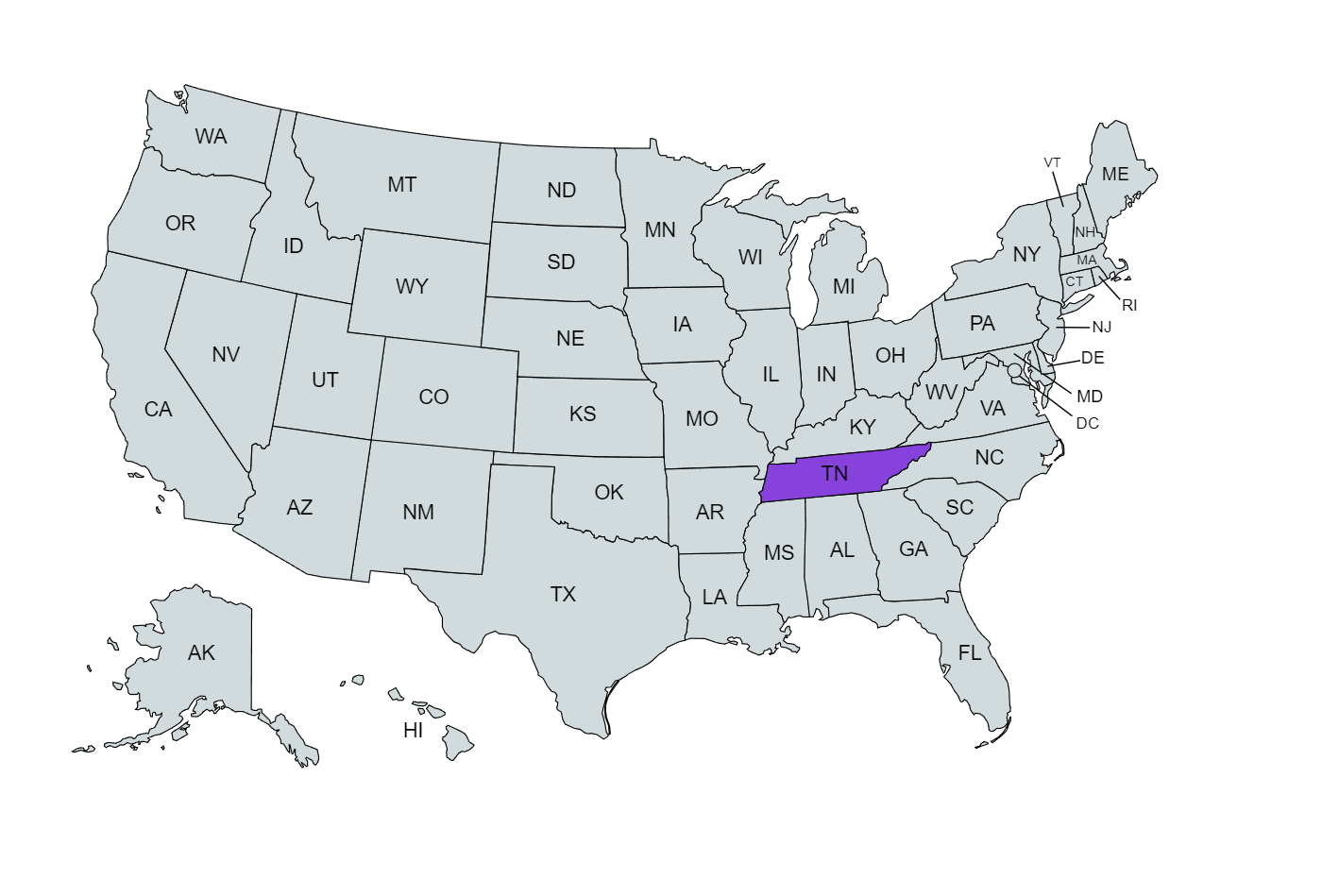Tennessee Paycheck Calculator: Calculate Your Net Pay
If you’re wondering, “How do I figure out how much money I take home in Tennessee?” we’ve got you covered.
Use our simple paycheck calculator to estimate your net or “take home” pay after taxes, as an hourly or salaried employee in Tennessee.
Paycheck Calculator
Meanwhile, get ahead with our free resources:
How Does the Paycheck Calculator Work?
Input your salary information, such as wage and pay frequency, and our tool will handle the tax calculations for you. Once you’ve filled in all the information, click the “Calculate Tax” button, and the calculator will provide an estimate of your net or “take home” pay for the specified pay period.
Overview of Tennessee Taxes
Tennessee takes an unconventional approach to income tax. Unlike most states, it does not impose an individual income tax on salaries and wages. However, income derived from investments, such as stocks, bonds and notes receivable, is subject to a flat rate of 6%.
Certain exemptions provide relief from this tax burden. For instance, single filers benefit from an exemption on the initial $1,250 of their taxable income, while joint filers enjoy a similar exemption on the first $2,500. Individuals aged 65 and older, with total incomes falling below $37,000 for singles or $68,000 for joint filers are also exempt from this tax.
The statewide sales and use tax rate is 7%, with specific provisions for food items, which are taxed at a reduced rate of 5%. Beyond the state rate, local sales taxes, can augment the total tax burden by up to 2.75%. As a result, the average combined state and local sales tax rate in Tennessee stands at 9.55%.

With an average effective property tax rate of approximately 0.66%, annual property tax payments often fall below $1,300. For retirees and eligible individuals, property tax relief programs offer financial respite.
Furthermore, the Volunteer State offers a Property Tax Freeze program, allowing qualifying residents to lock in their tax-assessed property values and shield themselves from future tax increases.
When it comes to motor vehicle taxes, Tennessee imposes levies on vehicle purchases, including a 7% base rate and an additional 2.75% state tax for sales prices within the $1,600 to $3,200 range. Local taxes may further augment these rates.
On the fuel front, Tennessee maintains a comparatively lower gas tax of $0.274, positioning it favorably against many other states.
The state does not impose an estate tax, nor does it levy inheritance taxes.
Median Household Income in Tennessee
Tennessee's diverse economic landscape positions it as the 12th best-performing state in the nation, highlighting its resilience and growth potential. The state's economy is a dynamic blend of manufacturing, agriculture, healthcare and tourism.
With a population of 7,039,741, Tennessee ranks 9th in population growth among U.S. states. In 2022, its Gross State Product (GSP) reached $350.7 billion, driven by industries like Manufacturing and Healthcare.
Employment trends show Tennessee ranking 19th in total employment, with key sectors including Healthcare, Business Support Services and Retail Trade.
Salaries in Tennessee vary widely based on position. However, the median household income can give you a glimpse at the average salary a household is earning in this state.
Tips for Maximizing Your Paycheck
Here are some tips to help you maximize your paycheck:
- Get familiar with Tennessee's tax system
- Take advantage of tax exemptions available
- Craft a budget tailored to your income
- Consult with a financial advisor to explore investment opportunities
- Keep a close eye on your debt obligations
- Build an emergency fund to cover unexpected expenses
- If eligible, contribute to an HSA to cover qualified medical expenses
